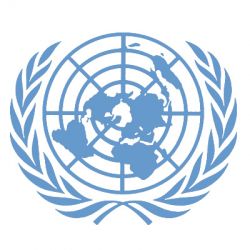The report outlines Poland’s commitment towards ensuring appropriate health services for all citizens, in addition to the issues that remain of concern, such as the right to legal abortion. The Helsinki Foundation for Human Rights has been closely monitoring the situation of these particular health concerns for many years and followed the report release.
Poland has ratified a number of treaties on enjoying the right to health, including the International Covenant on Civil and Political Rights (ICCPR), as well as been a party to major regional human rights treaties such as the European Convention for the Protection of Human Rights and Fundamental Freedom. The Special Rapporteur observes that the right to healthcare can be delayed without the introduction of anti-discrimination policies and calls upon the Government to ensure the compliance of legislation with international human rights. Nevertheless, the Rapporteur observed that development can also be delayed due to the budget limitations that are often insufficient for the growing population, which has a negative effect on funding of the public health care system.
As stressed in the report, Poland has a lot of obstacles on the way to the fulfillment of complete rights to sexual and reproductive health care. The deeply rooted tradition of the involvement of the Church in the State is displayed in the light of the concern with the interference of non-State actors, such as priests. This can be displayed with the information the Special Rapporteur was presented regarding a case where a priest pressured a girl of 14, who became pregnant as a cause of rape, to not seek abortion. As a result, no abortion took place. In response to the findings, the Special Rapporteur calls upon the Polish Government to fulfill its obligation proactively by preventing interference by non-State individuals.
Subsequently, the case of Tysiąc vs. Poland was reviewed, which presents the restrict nature of the Polish abortion laws. The case involved a woman who was suffering from a serious eye condition and desired to terminate her pregnancy following the confirmation of doctors that the delivery threatened her eyesight. Despite the fact that abortion based on health grounds is legal, Ms. Tysiąc’s doctors refused to grant her an abortion twice, which resulted in Ms. Tysiąc delivering the baby and her eyesight hindering. The Court required Poland to provide compensation due to the inability to provide legal abortion services. Despite adequate reimbursement, Government of Poland has still to implement the Court’s decision to the full extent and has not put in place appropriate mechanisms and procedures that would guarantee a women’s access to legal abortion. These would include limitations on doctors who refuse a women’s right to abortion by recording each dismissed case as well as putting in place a specific and effective procedure for women wishing to be granted the right for abortion, that would include their case being reviewed by multiple doctors. This would guarantee a fair and independent overview of her case. The Special Rapporteur calls upon the Government of Poland to ensure and endorse legislation in compliance with the Tysiąc case, whilst stressing that a woman’s right to legal abortion is limited in light of its criminalization. There is a clear emphasis on that while abortions are legal and safe, they must be made accessible.
Health professionals in Poland play an important role in ensuring a woman’s access to sexual and reproductive health services. Nevertheless, the Special Rapporteur regrets that Polish health professionals do not have adequate prospects of receiving education and training in human rights, which has a direct impact on the exercise of conscientious objection which often interferes in one’s rights to seek reproductive and sexual health rights. Furthermore, this leads to concern that circumstances for invoking conscientious objection are not met in Poland due to the lack of records, without which access to legal abortions is severely limited.
Consequently, the report discusses the situation regarding drug use and its reduction and treatment. The Special Rapporteur concludes that a drug-free regime dominates Poland’s policies, despite the fact that substitution therapy is more effective and is included in the 2005 Act of Counteracting Drug Addiction. Methadone therapy is less widely used than substitution therapy; in fact there has been an increase in drug treatments and only 14 percent of the people are receiving methadone treatment. It is not only rarely used but problematic to obtain, due to the fact that it is most often used only in Warsaw or Cracow. Efforts must continue to guarantee methadone is an available option for every-one who is opiate-dependent. Despite these setbacks, the report commends the National AIDS Centre established in 1993, whose work is not only limited to treatment but also education regarding HIV and AIDS. With that in mind, the Special Rapporteur notes with satisfaction that the Government recognizes the general aura of public ostracism towards those living with HIV and proceeds with the development of successful campaigns to raise awareness.
Concluding, the United Nations Report of the Special Rapporteur to the Mission to Poland set forth several realistic recommendations that he believes would ameliorate the situation in the arena of sexual and reproductive health rights. These recommendations include adopting a strategy that would “… promote dialogue on the rights to sexual and reproductive health in public health policies…” as well as, “ensure rights to sexual and reproductive health counseling services to support women”. The Special Rapporteur believes that Poland is committed towards realizing fully one’s rights to health- however, this requires participation of all groups at national, local and regional branches of government.
To read the Report click here.
* Katarzyna Budzeń – the author is the intern at Helsinki Foundation for Human Rights





